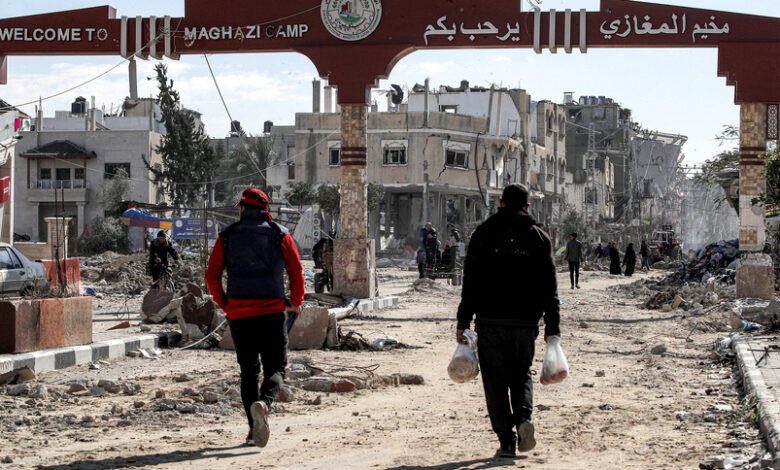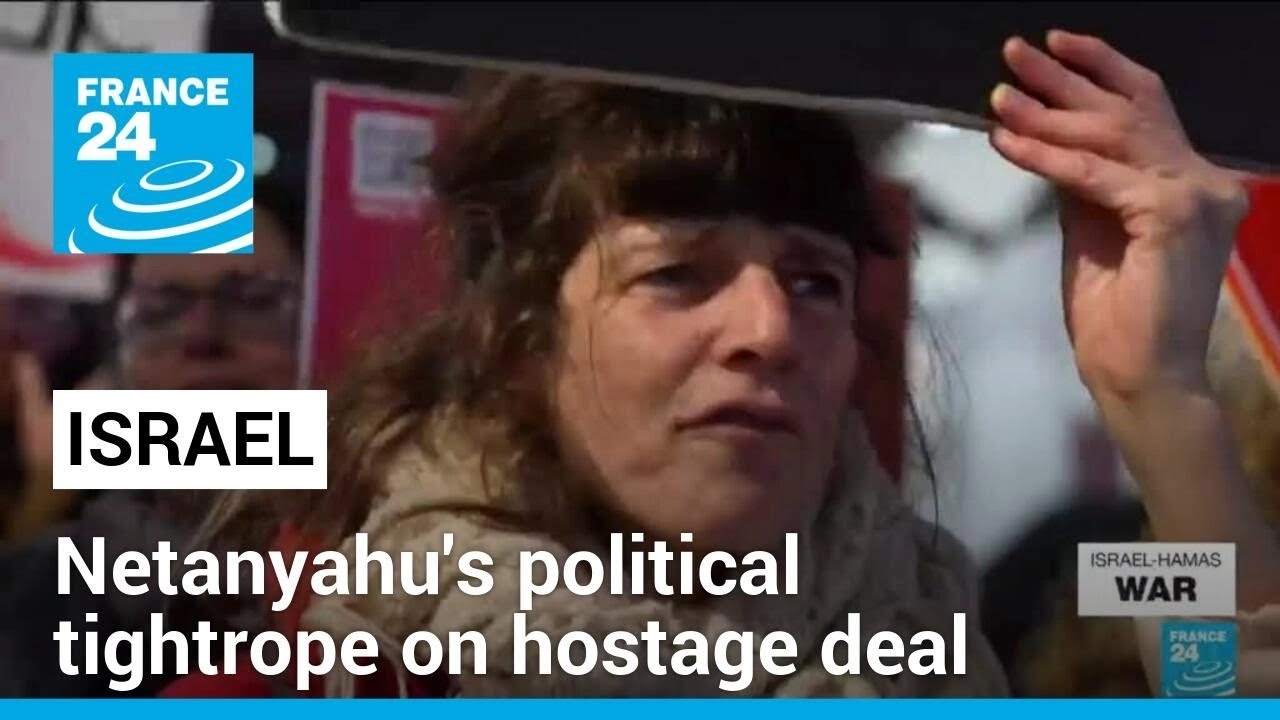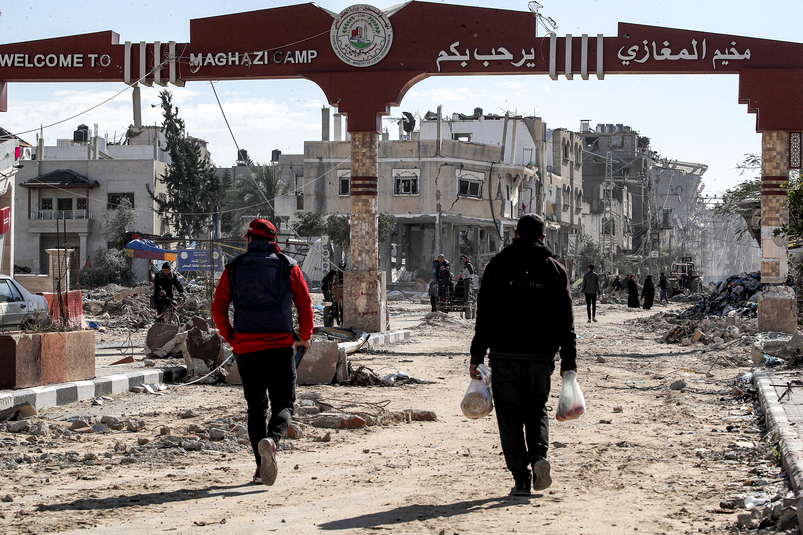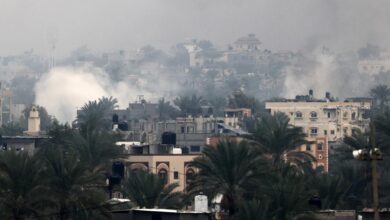
Netanyahus Political Tightrope on Hamas Hostage Deal
Netanyahu s political tightrope on hamas hostage deal – Netanyahu’s political tightrope on Hamas hostage deal is a delicate balancing act, with immense pressure from both domestic and international stakeholders. The recent hostage crisis, involving Israeli citizens held captive by Hamas, has thrust the issue to the forefront of Israeli politics, placing Netanyahu in a precarious position.
His government faces mounting pressure to secure the release of the hostages, while navigating the complex web of political and ethical considerations associated with any potential deal.
The potential deal raises critical questions about the political and strategic implications for both Israel and Hamas, as well as the impact on regional stability and international relations. The international community, including key players like Egypt and the United States, are closely watching the situation, while the families of the hostages and victims grapple with the emotional and psychological toll of the crisis.
The ethical concerns surrounding the potential release of Hamas prisoners, the impact on the Israeli-Palestinian conflict, and the long-term consequences of any agreement are all central to the debate.
The Political Context

The Hamas hostage crisis has thrown Israeli politics into a state of turmoil, putting immense pressure on Prime Minister Benjamin Netanyahu and his government. The crisis has exacerbated existing political divisions and intensified the debate over the best course of action.
Domestic Political Pressures
The hostage crisis has intensified domestic political pressures on Netanyahu. The public is deeply divided over the handling of the situation, with some demanding a forceful military response and others advocating for diplomacy and negotiation.
- Right-wing pressure:Netanyahu faces pressure from his right-wing coalition partners, who advocate for a hard-line approach and a swift military operation to secure the release of the hostages. This group is vocal in its support for a forceful response and criticizes any attempt at negotiation with Hamas.
- Opposition pressure:The opposition, led by former Prime Minister Yair Lapid, has criticized Netanyahu’s handling of the crisis, arguing that his government has failed to adequately protect Israeli citizens and has not prioritized the hostages’ safety. They have called for a more measured and diplomatic approach, emphasizing the need to prioritize the lives of the hostages.
- Public opinion:Public opinion polls have shown a mixed response to the crisis, with a significant portion of the population expressing frustration with the government’s handling of the situation. Some Israelis feel that the government has not done enough to secure the hostages’ release, while others are concerned about the potential consequences of a military operation.
Potential Impact on Netanyahu’s Political Future
The hostage crisis has the potential to significantly impact Netanyahu’s political future. A successful resolution of the crisis could bolster his standing, showcasing his leadership and ability to handle complex situations. However, a failure to secure the hostages’ release or a botched military operation could severely damage his reputation and potentially lead to his downfall.
It’s a tough call for Netanyahu – a Hamas hostage deal could be seen as a win, but it could also alienate his right-wing base. Meanwhile, across the globe, Parisians are facing a different kind of political tightrope walk: voting on a surcharge for SUV parking.
This decision, like Netanyahu’s, hinges on balancing public opinion and political priorities. Ultimately, both situations demonstrate the complex dance of political maneuvering, where every step carries potential consequences.
“The Hamas hostage crisis is a major test for Netanyahu’s leadership. The way he navigates this crisis will have a significant impact on his political future.”
[Name of Political Analyst]
The Hamas Perspective: Netanyahu S Political Tightrope On Hamas Hostage Deal
Hamas, the Palestinian Islamist group that controls the Gaza Strip, finds itself in a complex position regarding the hostage deal. The group’s motivations, potential outcomes, and strategic implications of the deal are multifaceted and carry significant weight for Hamas’s future.
The pressure is mounting on Netanyahu as he navigates the delicate tightrope of a potential Hamas hostage deal. The situation is complex, with many factors at play, including the safety of the hostages and the potential consequences of any agreement.
It’s a far cry from the world of cricket, where Australia’s dominance is undeniable, as evidenced by their crushing victory over the West Indies in just 6.5 overs. But while the sporting world offers moments of exhilarating triumph, Netanyahu’s challenge requires a careful balance of diplomacy and political maneuvering to achieve a positive outcome.
Motivations Behind Hamas’s Demands
Hamas’s demands in the hostage deal are driven by a combination of strategic, political, and ideological factors. The group seeks to leverage the situation to achieve its long-standing objectives, including the release of Palestinian prisoners, the lifting of the Israeli blockade on Gaza, and recognition of its political and military authority.
- Prisoner Release:Hamas prioritizes the release of its members and supporters held in Israeli prisons. This is a core demand that underscores the group’s commitment to its members and its fight against Israel.
- Lifting the Blockade:The Israeli blockade on Gaza has significantly impacted the lives of Palestinians, restricting access to essential goods, services, and humanitarian aid. Lifting the blockade is a major demand for Hamas, aiming to improve the living conditions of Gazans and weaken Israel’s control over the territory.
- Recognition of Authority:Hamas seeks international recognition as the legitimate representative of the Palestinian people in Gaza. By securing a deal that includes concessions from Israel, Hamas aims to strengthen its political standing and legitimize its control over the territory.
Consequences of a Successful or Failed Deal for Hamas
The outcome of the hostage deal holds significant implications for Hamas, shaping its future trajectory and influencing its standing in the region.
- Successful Deal:A successful deal that meets Hamas’s demands would bolster the group’s image as a strong and capable force. This could enhance its popularity among Palestinians and potentially strengthen its position in internal Palestinian politics. The deal could also lead to improved living conditions in Gaza and a reduction in Israeli military actions.
- Failed Deal:A failed deal, however, could severely damage Hamas’s reputation and weaken its political and military standing. The group could face internal criticism and potential loss of support from the Palestinian public. A failed deal could also escalate tensions with Israel, potentially leading to further military confrontations and a worsening humanitarian situation in Gaza.
Netanyahu’s balancing act on the Hamas hostage deal is a delicate one, requiring him to appease both his hawkish base and the international community. It’s a stark contrast to the Thai government’s decision to ban recreational cannabis use , a move that has sparked controversy but ultimately falls under their domestic jurisdiction.
Ultimately, Netanyahu’s success in securing the release of the hostages will depend on his ability to navigate these competing pressures and find a solution that is both effective and politically palatable.
Political and Strategic Implications of the Deal for Hamas
The hostage deal presents a strategic opportunity for Hamas to advance its political and military objectives. The group aims to use the deal to strengthen its position within the Palestinian political landscape, improve its relations with other actors in the region, and enhance its influence in international affairs.
- Internal Palestinian Politics:A successful deal could strengthen Hamas’s position within the Palestinian political landscape. It could increase the group’s support among Palestinians and potentially lead to greater influence in future negotiations with Israel.
- Regional Relations:The deal could impact Hamas’s relations with other actors in the region, particularly with Egypt and other Arab states. A successful deal could lead to improved relations and potentially increased support from these actors.
- International Influence:A deal that secures Hamas’s key demands could enhance the group’s international influence. It could increase its recognition as a legitimate political entity and potentially lead to greater engagement with international actors.
International Reactions and Implications
The international community has responded to the Hamas hostage crisis and the potential deal with a mix of concern, cautious optimism, and calls for the safe return of all hostages. The situation has highlighted the complexities of the Israeli-Palestinian conflict and the delicate balance of power in the region.
International Reactions
The hostage crisis has drawn widespread condemnation from the international community. Many countries, including the United States, the United Kingdom, and the European Union, have called for the immediate and unconditional release of all hostages. The United Nations Security Council has also issued a statement condemning the hostage-taking and demanding their release.
- United States:The U.S. government has been actively involved in mediating the negotiations, with President Biden and Secretary of State Blinken engaging in diplomatic efforts to secure the release of the hostages. The U.S. has also provided significant financial and military aid to Israel.
- Egypt:Egypt has played a crucial role as a mediator between Israel and Hamas. The Egyptian government has been instrumental in facilitating communication between the two sides and has been involved in negotiating prisoner exchanges in the past.
- Qatar:Qatar has been a key player in supporting Hamas, providing financial and humanitarian aid. Qatar has also been involved in mediating talks between Israel and Hamas in the past.
- United Nations:The United Nations has condemned the hostage-taking and called for the immediate release of all hostages. The UN has also called for a peaceful resolution to the conflict.
Potential Implications of a Deal, Netanyahu s political tightrope on hamas hostage deal
The potential deal could have significant implications for regional stability and international relations. If a deal is reached, it could lead to a de-escalation of tensions in the region and potentially pave the way for a more lasting peace agreement.
However, the deal could also face significant challenges, such as the need for long-term security arrangements and the potential for future conflict.
- Regional Stability:A successful deal could contribute to a decrease in violence and instability in the region, particularly along the Israeli-Gaza border. This could create an environment more conducive to economic development and cooperation.
- International Relations:A deal could improve Israel’s international standing, particularly in the eyes of Western nations. However, the deal could also face criticism from some quarters, particularly if it involves concessions to Hamas.
- Long-Term Security:A deal would need to address the long-term security concerns of both Israel and Hamas. This would likely involve agreements on the disarmament of Hamas, the removal of the blockade of Gaza, and the establishment of a framework for future negotiations.
Wrap-Up

The Hamas hostage deal presents Netanyahu with a complex and multifaceted challenge, requiring him to carefully weigh the political, strategic, and ethical considerations involved. The outcome of the negotiations will have far-reaching implications for both sides, as well as for the broader Middle East region.
The international community will continue to play a crucial role in shaping the outcome, while the families of the hostages and victims will anxiously await a resolution. The negotiations surrounding the hostage deal highlight the deep complexities of the Israeli-Palestinian conflict and the immense challenges facing both sides in seeking a lasting peace.





